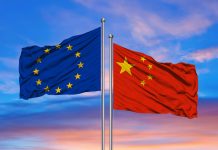DM Monitoring
MOSCOW: With both regimes increasingly isolated on the world stage, Myanmar’s top general has been in Moscow to meet senior officials from Russia’s defence ministry, pledging deeper military ties and cooperation on nuclear energy.
“They frankly exchanged views on further promotion of existing friendly relations and military-technological cooperation,” Myanmar state media reported, following a meeting between Senior General Min Aung Hlaing and Russian defence minister Sergei Shoigu.
Russia has emerged as one of the most important backers of Myanmar’s military, which seized power in a coup in February 2021, despite a 2020 election victory by Aung San Suu Kyi’s National League for Democracy.
The new regime has little international legitimacy and has struggled to control a country that erupted first in mass protests and then armed resistance against its rule. Even Russia has avoided giving formal recognition to the military as the government of Myanmar, agreeing to allow the ambassador appointed by the overthrown government to keep his seat at the United Nations. And while Min Aung Hlaing has made multiple trips to Russia since the coup, he has not been granted a much-coveted audience with President Vladimir Putin.
But even as many Western nations have imposed sanctions on the military, its leaders and business interests, Russia and China have continued arming the regime, even as it turns its weapons on its own civilians, killing more than 2,000 people in less than 18 months.
“The Putin regime is aiding and abetting the Myanmar military’s war crimes and crimes against humanity, which it is committing on a daily basis with total impunity,” said Khin Ohmar, chairperson of human rights organisation Progressive Voice.
One of the most crucial pieces of support has been to the regime’s air force, whose commander is also part of the delegation in Russia. The military is facing fierce resistance from newly formed anti-coup armed groups, known as the People’s Defence Forces (PDF), as well as more established ethnic armed organisations, which have fought for political autonomy for decades.
While these allied groups have surprised many analysts with their battlefield victories since the coup, none has warplanes, so the military’s air dominance gives it a distinct advantage.
Anthony Davis, a Bangkok-based security analyst, says the “military’s current counterinsurgency campaign relies critically on Russian and Soviet-era air frames” for attacks, supply lines, evacuations and troop transport.
“Without a reliable supply of spare parts, air-launched munitions not produced in-country, and some training assistance, the air force would soon be in serious trouble,” he added.




